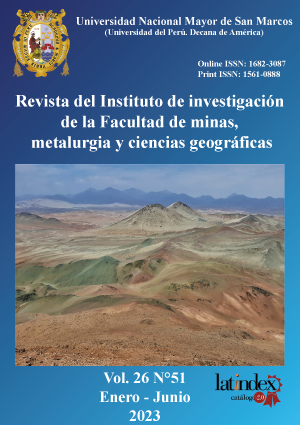Evaluation of the reuse of organic solid waste generated by catering services
DOI:
https://doi.org/10.15381/iigeo.v26i51.23942Keywords:
Reuse, organic solid waste, explore alternatives, composting, biogasAbstract
The purpose of this article is to compare alternatives for the reuse of organic solid waste generated by catering services, this research will be carried out by verifying studies no older than 5 years to date, denoting their progress in each method. to be used, by comparing the methods and results of each study, in order to define the best reuse alternative, taking into account the cost benefit, the advantages, disadvantages and the feasibility of each study. Therefore, in the present investigation, the result was to opt for the reuse of composting, because it is a process that generates great profits at little cost, in general 80% of organic waste is reused, on the other hand, we have the use through the generation of energy by obtaining biogas, being a slightly more complicated process due to the higher incidence in cost/benefit of this reuse alternative. Therefore, the article concludes that these 2 reuse processes are effective, of course one is cheaper and simpler than the other, but noting that both generate economic benefits.
Downloads
Published
Issue
Section
License
Copyright (c) 2023 Carlos Orlando Castillo Zavaleta, Carlos Del Valle Jurado

This work is licensed under a Creative Commons Attribution 4.0 International License.
AUTHORS RETAIN THEIR RIGHTS:
a. Authors retain their trade mark rights and patent, and also on any process or procedure described in the article.
b. Authors retain their right to share, copy, distribute, perform and publicly communicate their article (eg, to place their article in an institutional repository or publish it in a book), with an acknowledgment of its initial publication in the Rev. Inst. investig. Fac. minas metal cienc. geogr.
c. Authors retain theirs right to make a subsequent publication of their work, to use the article or any part thereof (eg a compilation of his papers, lecture notes, thesis, or a book), always indicating the source of publication (the originator of the work, journal, volume, number and date).






